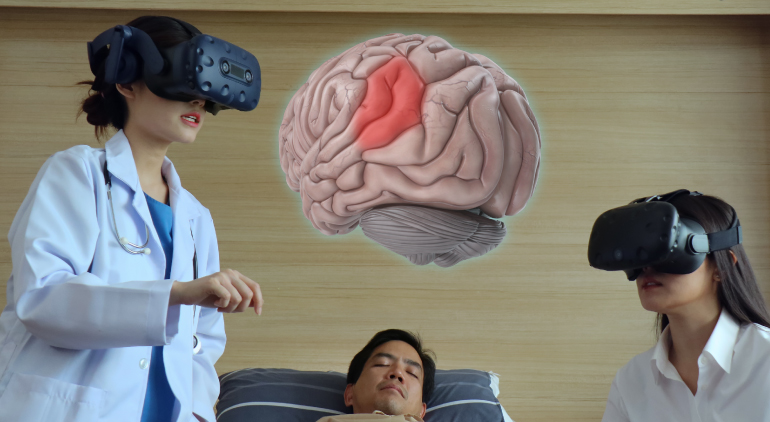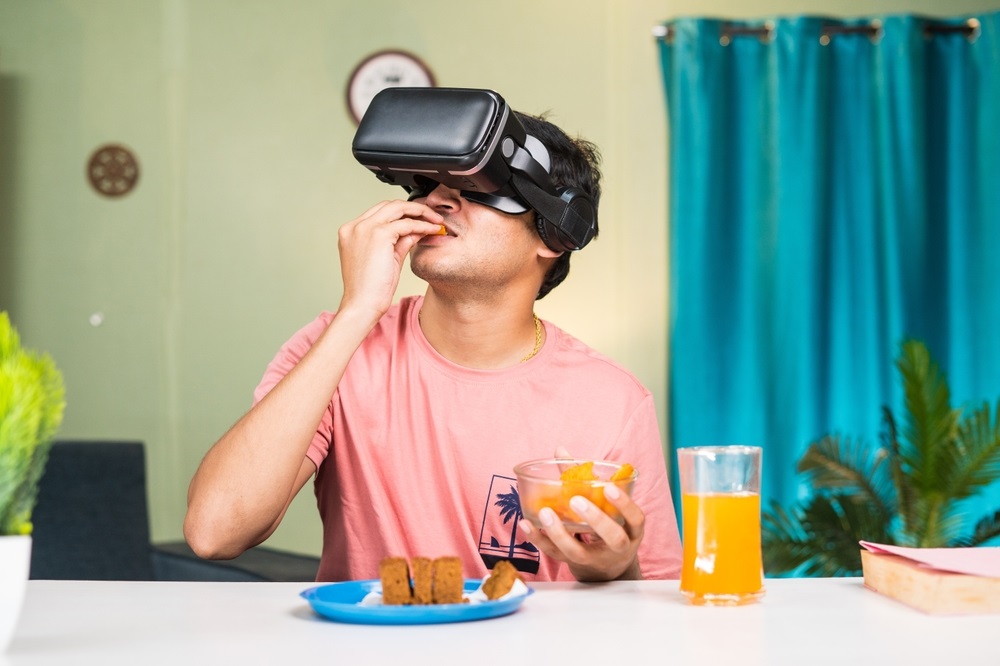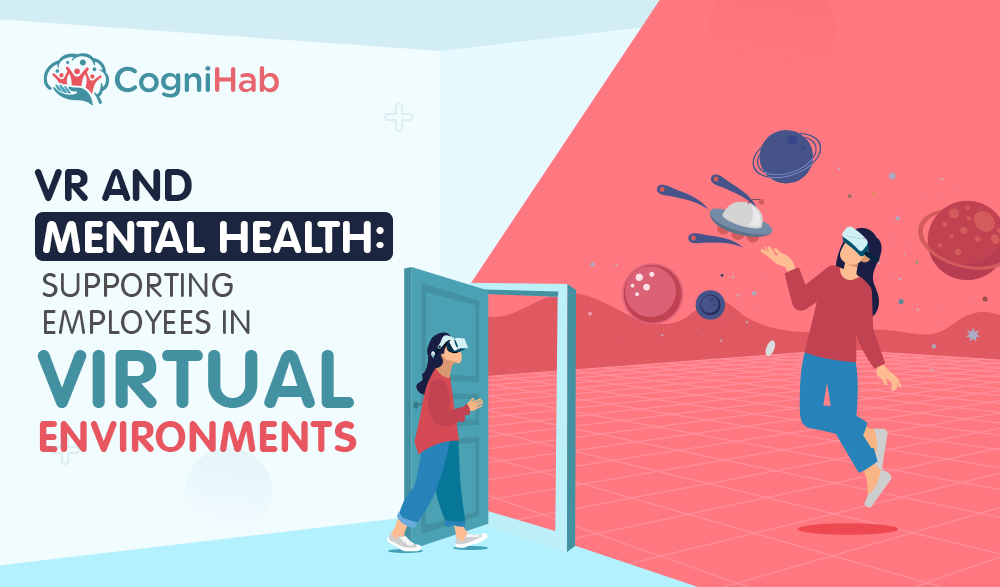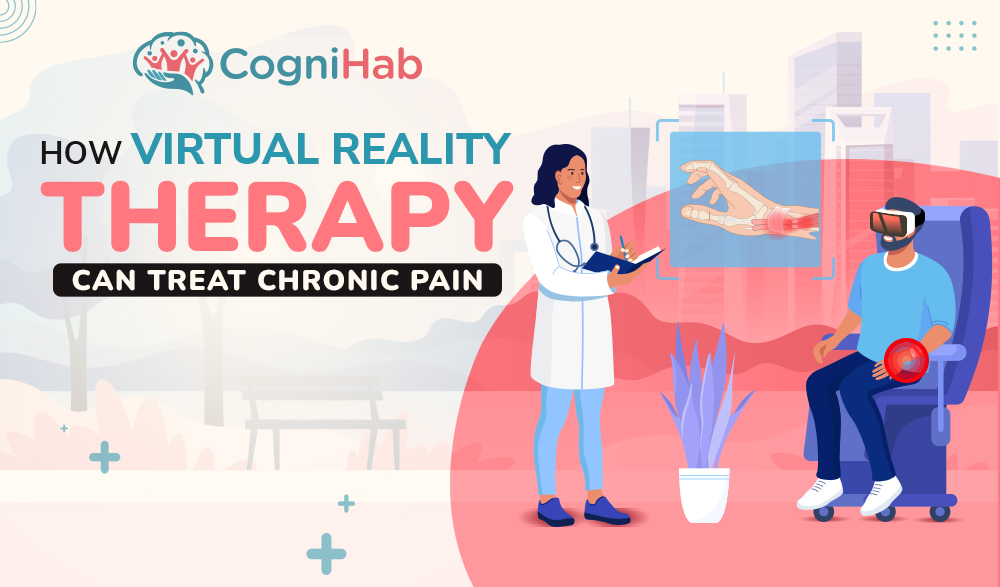Is Virtual Reality an Excellent Tool to Treat Neurological Disease?
It is very concerning that more than one billion people worldwide suffer from neurological diseases. According to a UN report, every sixth person on the planet suffers from a neurological disorder. Source: UN news
VR for Neurological Disease is proven to be a good tool. Epilepsy, dementia and Alzheimer's, Parkinson's, Amyotrophic Lateral Sclerosis (ALS), Bell's palsy, and other neurological disorders are among the most common. There could be many possible reasons for the disease; however, it is hard to zero down the exact one. However, this disease is caused primarily by genetic disorders, congenital abnormalities or disorders, infections, lifestyle, malnutrition, and a brain, nerve, or spinal cord injury.
Disease Fact Sheet
- The number of people living with dementia is over 55 million. Source: WHO
- Parkinson's disease affects more than 10 million people worldwide. Source: parkinson.org
- The prevalence of Alzheimer's, which affects 50 million people worldwide, is rising. Source: alz.org
- Globally, 50 million people have epilepsy. source: WHO
Let us further understand neurological disorders and how Virtual reality is helping with them.
Understanding Neurological Disease
The brain is made of nerves and supporting tissues located inside the head and shielded by the skull to protect from damage. The central nervous system, which comprises the spinal cord and the brain's base, is connected (CNS). The CNS helps the mind send commands to the entire body by establishing a channel for information to travel there with the help of the PNS.
The peripheral nervous system, also known as PNS, is a portion of the nervous system that extends outside the brain and spinal cord. The PNS is made up of nerves that extend from the spinal cord and carry signals from the brain to various body parts.
The CNS and PNS work together to enable human function and behaviour. A neurological disease or disorder is any condition that affects the central nervous system, peripheral nervous system, or both.
Symptoms of Neurological Disease
A patient suffering from a neurological disease may experience a variety of symptoms that are not always consistent. People suffering from the disease may experience symptoms in their eyes, ears, smell and taste senses, skin sensitivity, joints, muscles, and other body parts. However, some of the most common ones are as follows:
- Headache that lasts or comes on suddenly and changes
- Tingling or loss of sensation
- Muscle weakness or loss of strength
- Blindness or double vision
- Memory lapses
- Impairment in mental ability
- Coordination failure
- Muscle stiffness and seizures
- Back pain that travels to the feet, toes, or other body parts
- Speech issues
- Problem with learning a new language
If you face one or a couple of symptoms mentioned above, you should visit a neurological health expert for an accurate diagnosis.
Treatment For Neurological Disease
Depending on the patient's condition, numerous treatments are available for neurological disorders. The first step involves a combination of medicine and neuro-rehabilitation. It intends to restore, minimize, or compensate for the patient's functional impairment.
Medicines, deep brain stimulation, spinal cord stimulation, rehabilitation or physical therapy after a brain injury or stroke, or spinal surgery may be used in the treatment. Treatment is always tailored to the patient's symptoms and conditions.
Virtual Reality for Neurological Disease
The human brain can retain only a tiny portion of information, and this number drops even further when the student is not engaged. VR, on the other hand, gives us the ability to scale up and dynamically improve learning.
According to scientific research in neuroscience and psychology, the brain builds a mental map of an environment from data ingested through the five senses. Our perception of reality is then formed from the information, and as we learn more, our cognitive abilities grow. When we see something we are familiar with, the brain makes predictions about what will happen next.
Additionally, a number of studies imply that VR therapy might be advantageous for people with neurological disorders as you enjoy receiving treatment and your brain's re-wires. By utilizing neuroplasticity, you have the potential to improve the functionality and health of your neurons and nervous system. This might improve brain function while easing your symptoms.
Neurorehabilitation using VR improves patient satisfaction and engagement. It provides the patient with a tailored experience similar to a video game that is different from traditional therapy and leads to better results. You can therefore expect a change in your nervous system that will encourage proper functioning and better relief.
Both surgical and non-surgical types of rehabilitation can be done using virtual reality. VR stroke rehabilitation programs are developed to help patients regain their independence and increase their level of activity.
These tailored programs are developed for VR headset therapies based on the patient's requirements. These programs are very beneficial because they allow patients to work independently and feel more independent. Also, it helps to improve mobility so patients can move around more independently. VR also helps patients reduce anxiety and phobias to socialize more after surgery. Furthermore, it recognizes that recovery is a long process that calls for physical work and emotional support; therefore, it also provides emotional support.
Conclusion
Recovery requires support from loved ones and the guidance and care of a qualified professional. An expert can improve the chances of a better and faster recovery. The use of virtual reality in medicine will require significant changes in current practices. VR for Neurological Disease has proven to be one of the best tools for treating the condition. It is changing how people view the healthcare industry as well as the medical experience. Cognihab's rehabilitation suites were designed to make life easier for neurological patients. We also offer vision therapy suits, equipment for treating cerebral palsy or autism, and suites for reducing anxiety.







